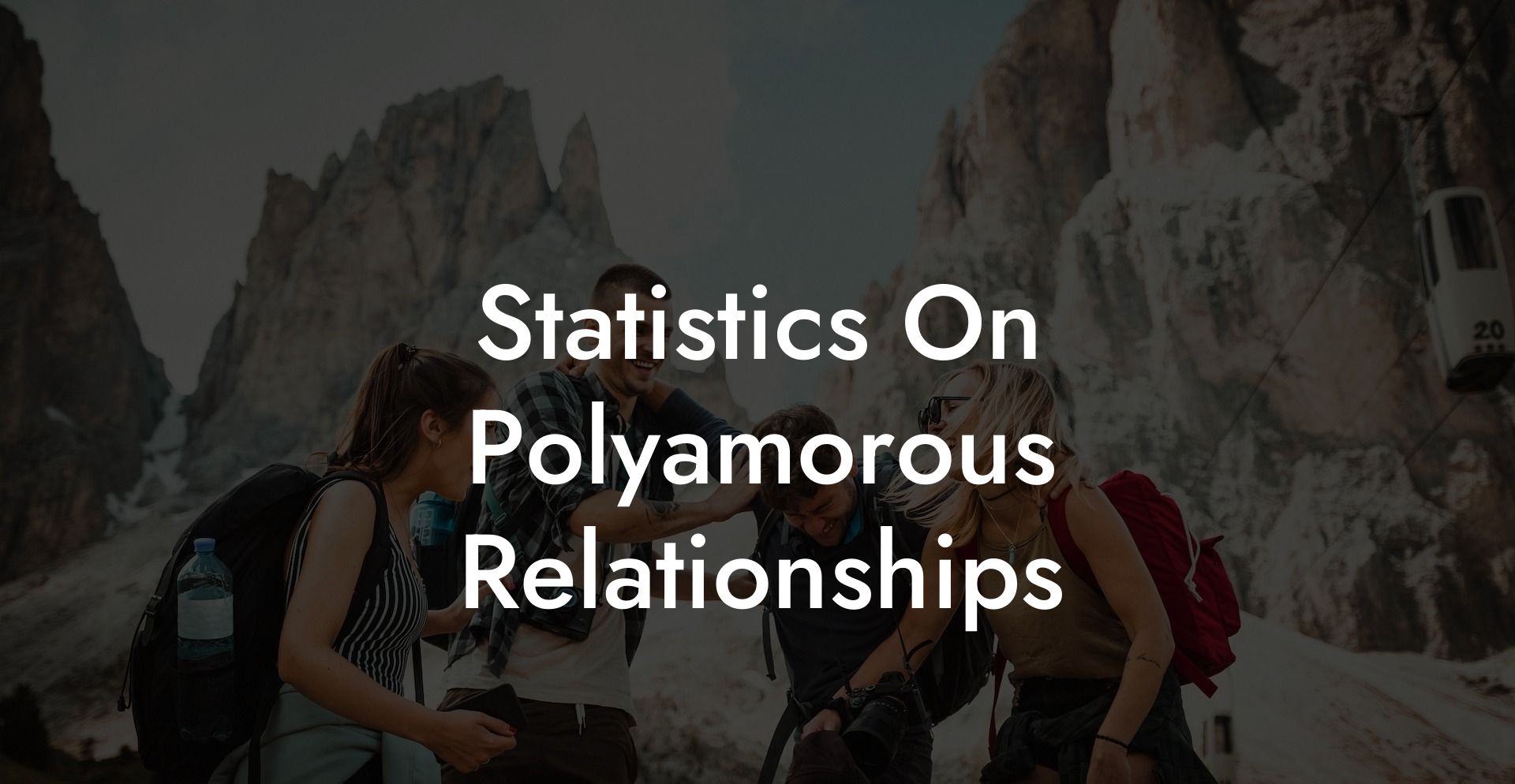Curious about polyamorous relationships? In today's society, more and more people are challenging the traditional notion of monogamy and embracing a wider variety of relationship styles. In this article, we'll dive into the numbers and explore some interesting statistics on polyamorous relationships that will enlighten and perhaps surprise you.
Statistics On Polyamorous Relationships Table of Contents
How Common are Polyamorous Relationships?
What is Polyamory?
Polyamory is a type of non-monogamous relationship in which individuals have multiple partners with the consent and knowledge of all parties involved. These relationships can involve various dynamics, including polyfidelity (being sexually exclusive within a group), open polyamory (having multiple relationships but no limits on sexual or romantic partners), and hierarchical polyamory (in which there are primary, secondary, and sometimes tertiary partners).
How Common are Polyamorous Relationships?
Although exact numbers are hard to come by, there is evidence to suggest that the number of people engaging in polyamorous relationships is on the rise. A 2014 survey by the CDC (Centers for Disease Control and Prevention) showed that around 1 in 5 Americans had engaged in any form of consensual non-monogamy at some point in their lives. In another survey conducted by the polyamory website Loving More in 2012, 4% of respondents reported being in a polyamorous relationship at the time. While these numbers might seem small, it is essential to note that those who openly identify as polyamorous may still face stigma and may be underrepresented in these statistics.
Demographics
- According to a 2020 Pew Research Center study, individuals who identify as LGBT (lesbian, gay, bisexual, and transgender) are more likely to be in polyamorous relationships than those who identify as heterosexual.
- A study in the Journal of Sex Research in 2019 found that younger adults aged 18-44 were more likely to report ever having a polyamorous relationship than older adults (45+).
- Multiple studies suggest individuals with higher levels of education are more likely to practice consensual non-monogamy (CNM) than those with lower levels of education.
Relationship Satisfaction and Stability
The quality and stability of polyamorous relationships have also been studied. In a 2017 study published in the journal Perspectives on Psychological Science, researchers found no significant differences in satisfaction levels between monogamous and consensually non-monogamous individuals. However, some studies have shown a higher incidence of breakups in polyamorous relationships when compared to monogamous ones. This could be due to the complex nature of managing multiple relationships and the potential for jealousy, misunderstandings, and other challenges.
Public Perception
Although polyamorous relationships are becoming more accepted in mainstream society, there is still a significant gap in understanding and acceptance. A 2018 YouGov survey revealed that only 17% of respondents thought polyamorous relationships are morally acceptable, and only 20% believed that they could be happy in one. These numbers reflect a need for greater education and awareness about consensual non-monogamy and its various forms.
Statistics On Polyamorous Relationships Example:
To put these statistics into context, let's consider a fictional polyamorous family consisting of Alice, Bob, and Carol. In this triad, they all have a romantic and sexual relationship with each other. They are part of the 4% of survey respondents in the Loving More survey who identified as being in a polyamorous relationship. Alice and Bob both have graduate degrees, placing them in a demographic more likely to engage in consensual non-monogamy. Lastly, they often encounter misconceptions and judgments from others due to the 17% moral acceptance rate in the YouGov poll.
Now that you're more well-informed about the fascinating world of polyamorous relationships, we hope you will share this article with friends and loved ones, helping to spread awareness and understanding about the many ways people can experience love and connection. For more engaging content on the ins and outs of monogamy, polyamory, and everything in between, be sure to explore the other guides on The Monogamy Experiment!













